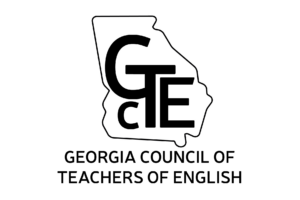Remaining in Solidarity with Teachers
We see teachers. We honor teachers. We respect teachers. We recognize the full humanity of teachers and affirm their unwavering commitment to students, families, and communities. In fact, we are fully aware that every single day, teachers are engaging in important, necessary, and hard work, often under hostile conditions and within dehumanizing environments that increasingly question their commitments, their expertise, and their teaching.
Yet we know that teachers continue to cultivate, support, and care for students inside of schools and beyond. Teachers continue to listen to and collaborate alongside students with heart, love, and compassion. Teachers know that to do otherwise is to neither teach nor nurture the brilliance, beauty, and bravery of students as full human beings. Teachers see the promise and potential in students when, at times and unfortunately, others might not readily do so.
In fact, teachers are well aware that we are all living, existing, and working in uncertain times. Teachers know the devastating impact that COVID-19 and ongoing racial violence have had and continue to have on the social, emotional, mental, physical, and spiritual well-being of themselves, of students, and of us all. Teachers know that children and young adults are watching us, asking what we will do, hoping that we will continue to not only see them, but also protect, care for, cultivate, love, and learn with them.
For as much as the responsibilities of teachers have increased and, in most cases, have become overwhelmingly difficult, teachers still show up. Teachers still embrace the joys of teaching and learning. Teachers are still hopeful and hope-filled, even when, at times, their efforts are not rightfully recognized by others.
We want teachers to know that the National Council of Teachers of English (NCTE) sees you. NCTE values your work. NCTE honors you every single day.
NCTE also knows that teachers, in the words of James Baldwin in his 1963 talk to teachers,[i] realize “the paradox of education is precisely this—that as one begins to become conscious one begins to examine the society in which he is being educated.” And this is not easy work to do, but it is necessary if we are committed to responsibly living, learning, and teaching in a world of justice, fairness, kindness, and freedom.
At NCTE, we, too, are working hard to bring inspiration and support to teachers and, by extension, to students and to our larger community each and every day. Our Intellectual Freedom Center is but one example of our commitment to teachers and teaching. NCTE also recognizes the many hard-fought censorship cases that teachers have endured and continue to experience. We have learned with and from teachers, and we know that their battles are our battles, too.
Another example is the ever-increasing impact of our 2021 Annual Convention, “Equity, Justice, and Antiracist Teaching.” From sessions on justice teaching to keynotes by published writers, the conference motivated NCTE members-teachers to hold discussions on banned and challenged books. We are forever indebted to teachers for their bravery and brilliance.
Hence, we will always support teachers, as demonstrated by our commitment to provide our members with relevant professional learning experiences and timely advocacy support.
There is no other way to say it: NCTE loves, honors, respects, and cares for and about teachers. We are, indeed, inspired by teachers and we commit to being in community with teachers, always. Teachers give us hope and transform lives. Teachers lead us and their students to better futures.
To use the words of June Jordan from her 1973 speech on the value of Black language, delivered to the Maryland Department of Education, teachers understand that we can “not divorce ourselves from our experience” and we can “not deny the history of our life as a people. Nor will we permit the definition of our future to take place in the terms of and the language of those who do not love us, who have never loved us.”
NCTE lovingly and courageously respects teachers and the teaching profession, today and always. Join us as we honor, respect, and advocate on behalf of teachers and students.
[i] Baldwin, J. (1963). A talk to teachers, originally presented as “The Negro child—his self-image” in The Saturday Review. Reprinted in The Price of the Ticket, Collected Non-Fiction 1948-1985 by St. Martins (1985).
[ii] Jordan, June. (1973). Black English: The politics of language. https://archive.org/details/ERIC_ED092123/page/n45/mode/2up?view=theater
– NCTE President Valerie Kinloch and NCTE Executive Director Emily Kirkpatrick with support of the NCTE Presidential Team and NCTE Executive Committee and with endorsements from the following national, state, and regional groups that are part of the National Council of Teachers of English:
CONFERENCES & ASSOCIATIONS
ASSEMBLIES
Assembly on Computers in Education (ACE)
Children’s Literature Assembly
Early Childhood Education Assembly
AFFILIATES
Arizona English Teachers Association
Arkansas Council of Teachers of English and Language Arts
Arizona English Teachers Association
Kentucky Council of Teachers of English
North Dakota Council of Teachers of English
Pennsylvania Council of Teachers of English and Language Arts (PCTELA)
Connecticut Council of Teachers of English
Hawaii Council of Teachers of English
International Council of Teachers of English
North Texas Council of Teachers of English Language Arts



 .
. 

 .
. 








